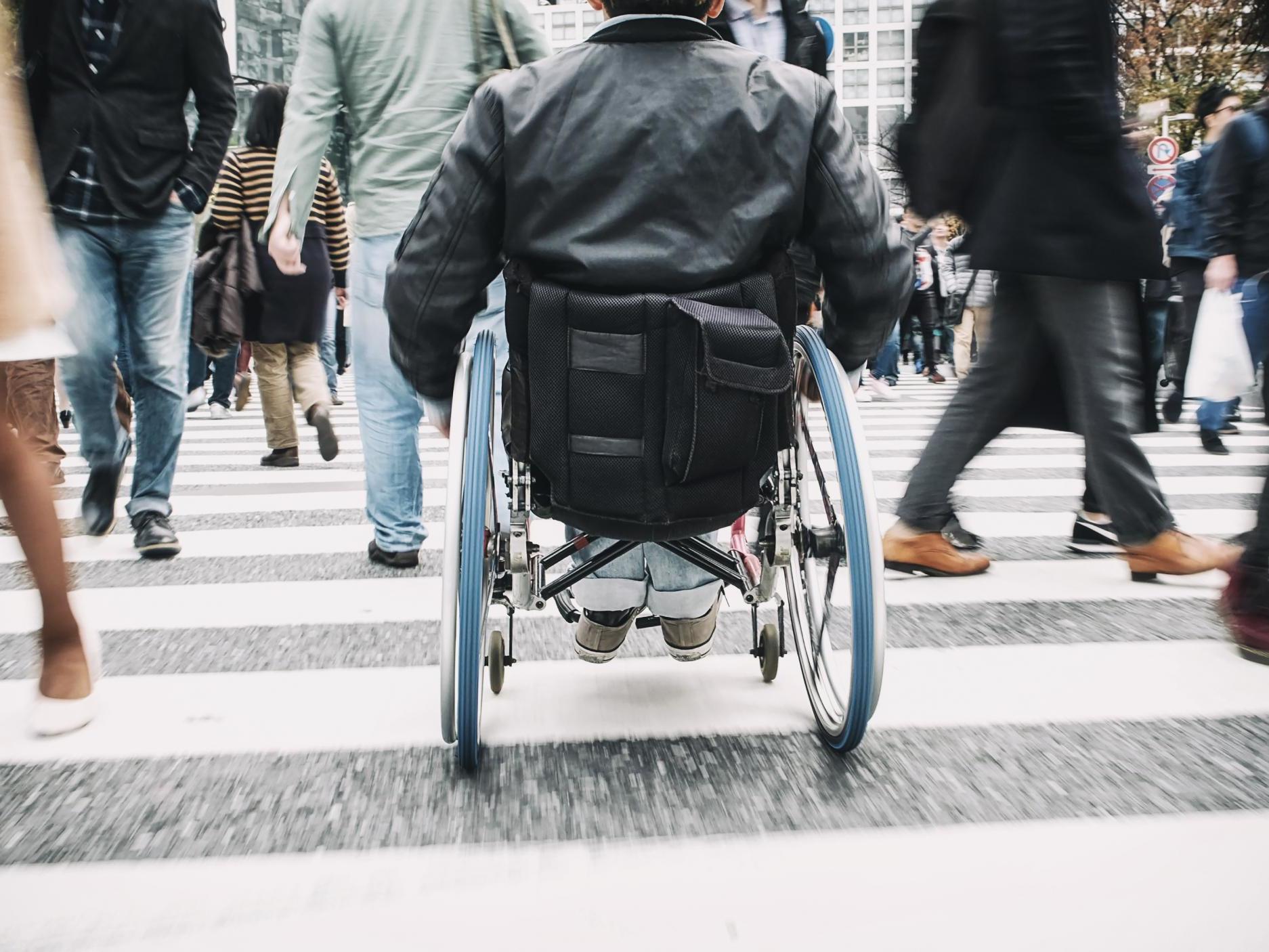Online disability hate crime hits record levels in England and Wales, figures show
Online hate crime against disabled people surges by a third, warns charity

Your support helps us to tell the story
From reproductive rights to climate change to Big Tech, The Independent is on the ground when the story is developing. Whether it's investigating the financials of Elon Musk's pro-Trump PAC or producing our latest documentary, 'The A Word', which shines a light on the American women fighting for reproductive rights, we know how important it is to parse out the facts from the messaging.
At such a critical moment in US history, we need reporters on the ground. Your donation allows us to keep sending journalists to speak to both sides of the story.
The Independent is trusted by Americans across the entire political spectrum. And unlike many other quality news outlets, we choose not to lock Americans out of our reporting and analysis with paywalls. We believe quality journalism should be available to everyone, paid for by those who can afford it.
Your support makes all the difference.Online disability hate crime has hit record levels in England and Wales, surging by a third in one year, figures show.
Campaigners have called for online hate crime against disabled people to be taken more seriously after data obtained by charity Leonard Cheshire shows a 33 per cent increase in incidents between 2016/17 and 2017/18, from 263 to 313.
The data, obtained through freedom of information requests, shows that some areas saw the figure increase by as much as tenfold, with incidents in Suffolk rising from two to 20 and incidents in Norfolk surging from four to 23.
Surrey also saw a significant rise, with records up from eight to 25, and though Kent did not report such a large increase, it had the most crimes reported in 2017/18, with 30 on record.
The charity said the sharp increases could be in part explained because police forces have been proactive in increasing the confidence of survivors to report their experiences.
It became mandatory for police forces to apply an online flag to hate crimes in April 2015, to provide a picture of the extent to which the internet and digital communications technology were being used to commit crimes.
Neil Heslop, chief executive of Leonard Cheshire, warned that incidents picked up by police may just be the “tip of the iceberg”.
“Police are increasingly recording online offences, but we know it remains an underreported area and that disabled people may have reservations about speaking out,” he said.
“We suspect many crimes remain under the radar, with survivors never getting support and perpetrators facing no consequences.
“These offences can have a devastating impact on the lives of survivors. We know from our work with disabled people that hate crime causes long-term fear, anxiety and in some cases, isolation.”
He said advocacy services that support disability hate crime survivors, of which the charity has one in Northern Ireland, were a “lifeline” and that such services should be rolled out across the UK.
Terence McCorry, Leonard Cheshire disability hate crime advocate said there were “many reasons” a disabled person might not report a crime to the police.
“They may not think the incident is worth bothering police for or they may have had a bad experience reporting issues in the past. They may lack confidence in speaking out and traditional reporting methods, such as the phone, may not be accessible for their disability,” he said.
Leonard Cheshire is now calling for global media companies, such as Twitter and Facebook to take online disability hate crime more seriously and protect all users.
The charity is backing MP’s recommendations for government and social media companies to directly consult disabled people on digital strategy and hate crime law so that the internet becomes a less threatening and more inclusive place for everybody.
A Home Office spokesperson said: “We are committed to tackling hate crime in all of its forms – including abuse targeting disabled people.
“The government works closely with stakeholders to tackle disability hate crime, including funding community-led projects, developing CPS guidance for disabled victims and witnesses as well as our public awareness campaign which included specific material making clear that disability hate crime is unacceptable.
“Last month the Government published the Online Harms White Paper, which will introduce a statutory duty of care to make companies take responsibility for the safety of their users, enforced by an independent regulator. This will include hate crime content.”
Join our commenting forum
Join thought-provoking conversations, follow other Independent readers and see their replies
Comments